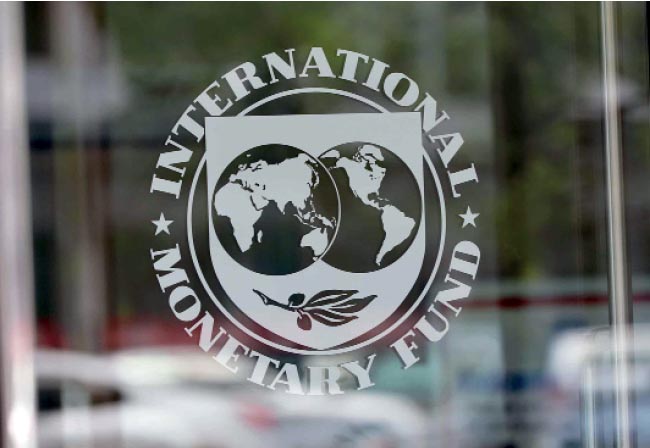The International Monetary Fund (IMF) has published a commentary, written by Christoph Duenwald who led the IMF mission to Afghanistan and Robert Tchaidze, claims that Afghanistan’s economic outlook is bright and promising since its economy is growing. In such challenging times, it’s more important to take note of successes that will ultimately lead to stability, prosperity and self-reliance in Afghanistan. The article says that growth increase last year, inflation remains in single digits, and exports started to grow, even if from a low base.
According to the article, Afghanistan was removed from the list of countries perceived to be non-cooperative in the global fight against money laundering and terrorist financing. And in May, based on measures taken by the government of Afghanistan to strengthen macroeconomic management and tackle corruption, the first review of an economic reform program supported by a financial arrangement with the International Monetary Fund (IMF) was completed successfully.
In 1955, Afghanistan gained membership of the International Monetary Fund. Since 2002, IMF support was instrumental in helping erase nearly all of Afghanistan’s external debt. Since then, the IMF has continued to help rebuild the economy and advise the government on economic reform policies, based in part on of IMF extensive experience with fragile and post-conflict states.
The IMF was formed in 1944 at the Bretton Woods Conference primarily by the ideas of Harry Dexter White and John Maynard Keynes with the intention of fostering global monetary cooperation, secure financial stability, facilitate international trade, promote high employment and sustainable economic growth, and reduce poverty around the world. Countries contribute funds to a pool through a quota system from which countries experiencing balance of payments problems can borrow money.
The IMF became involved in Afghanistan in 2002, to assist in rebuilding economic institutions and to provide advice to the government on economic policies and reforms. The IMF has been providing technical assistance to develop monetary instruments, strengthen the central bank, modernize foreign exchange regulations, revamp tax and customs administration, establish a fiscal regime for the natural resources sector, enhance public financial management, and improve the national accounts, and price and balance of payments statistics.
The writers of this commentary believed that since 2014, with the help of the IMF, the government has succeeded in increasing revenue by more than 50 percent. This was achieved through reforms in the revenue and customs departments and modifications to the tax regime.
It added that fighting corruption, which is still rampant in Afghanistan. The IMF is helping the government strengthen its legal framework to ensure that corruption is criminalized in line with international standards, and that high-level government officials are held accountable to the public.
Strengthening the banking sector is also one of the issues discussed in the article. The IMF has been supporting the Ministry of Finance and Da Afghanistan Bank to overcome the negative legacy of the 2010 Kabul Bank crisis in which the Afghan people were defrauded out of one billion US dollars.
The commentary says, “The IMF is deeply committed to this goal and is working closely not only with Afghanistan but also with international partners, especially the World Bank, which is playing vital role in Afghanistan, to achieve it. While peace has so far proven elusive, we are helping to build its economic foundations through strong institutions. In turn, these will allow for effective use of the substantial foreign aid flowing into the country and will help establish a dynamic private sector to invest and create the jobs needed to set Afghanistan on a path towards prosperity.”
Currently, Afghanistan is the member of IMF and has carried out its multi-lateral plans with the assistance of this international organization. The IMF assigns certain standard for Afghanistan annually for collecting revenue and economic growth that the government is supposed to fulfill it. Within the three past years, collecting revenue has met rapid growth and beyond the assigned standard.
Afghanistan’s ministry of finance has declared earlier that the imbursement through negotiating with taxpayers who did not pay taxes, transferring tax revenues to the central treasury, making reforms and changes in the country’s customs, setting agricultural tariffs, taxing credit cards for customers of telecommunication networks, increase in the right to passage for airplanes passing from Afghanistan’s environment, strengthening monitoring on customs and modernizing its equipment, as well as using intelligent systems are the reasons for the increase in Afghanistan’s revenues over the past three years.
Based on this article, task of building a prosperous future is enormous. It requires dedication and hard work both from the people of Afghanistan and from the international community.
Home » Opinion » Afghanistan’s Economic Outlook from the View of IMF
Afghanistan’s Economic Outlook from the View of IMF
| Zia Danish

